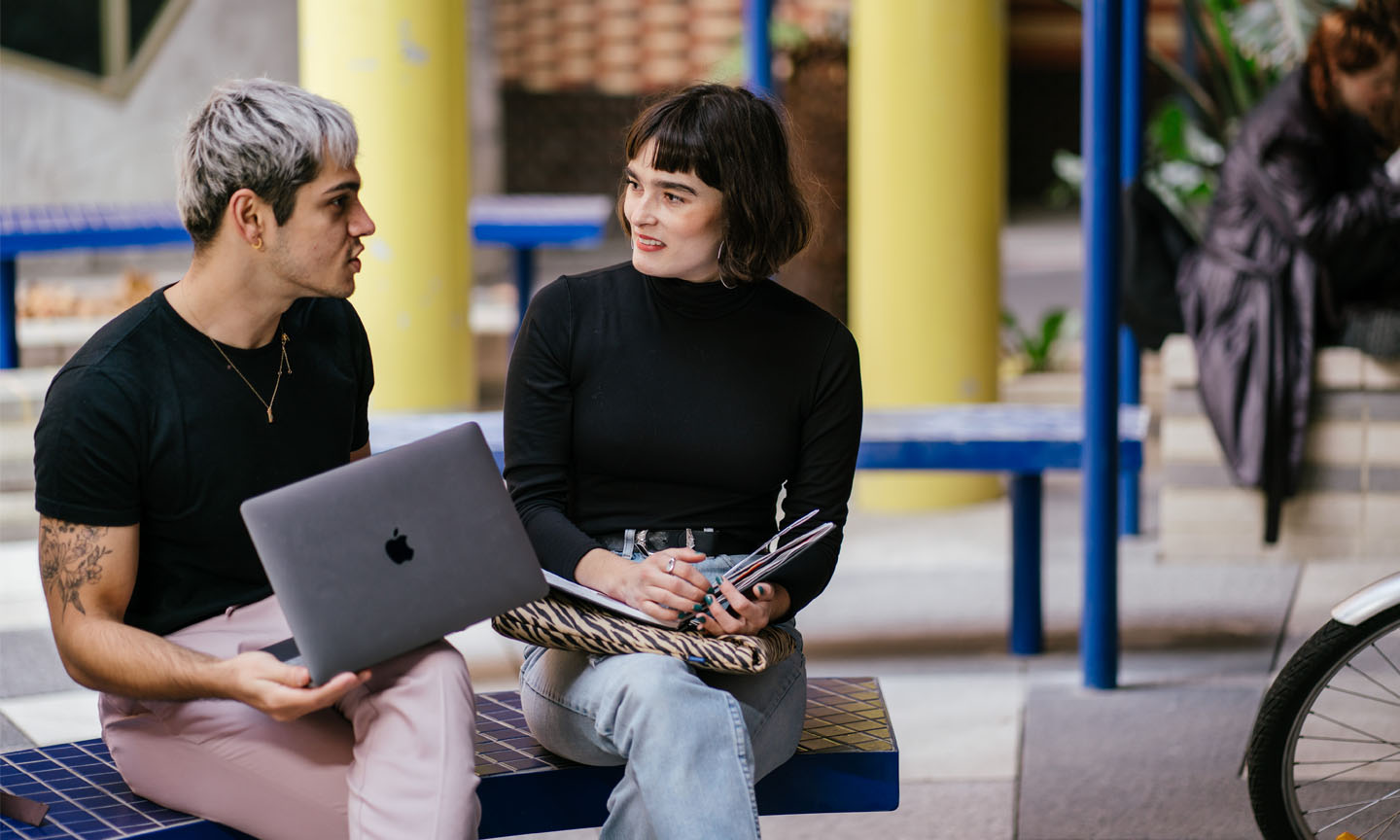A career in libraries was something Karen Seligman had always dreamed of, but it wasn’t until she had two children that she thought about it seriously.

“I guess I’ve always loved libraries and reading and books since I was a child but it wasn’t something I’d ever thought of as a career, it was more a fantasy job,” she says.
Seligman took up the Master of Information Management in 2011 when her daughters were aged one and four, and graduated in mid-2015. Before that, she had forged a career as a chemistry research scientist.
“I had been doing that for some time when my family came along and I realised that I needed a bit of a lifestyle change,” she says.
“I actually resigned from my work and reassessed my life a bit, and that’s when I thought, I’ve decided to stay home for a couple of years so maybe I can go back to uni.
“I can study towards a librarianship qualification and give it a go. Maybe it’s not just a crazy idea.”
Becoming a librarian appealed to her because of the part-time, family-friendly job opportunities.
She now works part-time for Yarra Plenty Regional Libraries – a job she describes as pretty much exactly what she had been hoping for.
Returning to uni after 20 years and finding a balance between study and parenting had its challenges, but Seligman is confident her family benefited in the long run.
“I loved the intellectual enrichment and challenge of having something sort of meaty to focus on,” she says.
“And also because when I was home with my very young kids, I felt a little socially isolated, and my studies and my colleagues were like a connection back to the outside world.
“I think in a more intangible way, hopefully I am providing a good model for my children, especially because I have girls.
“I want them to know that learning and doing your best is fun and satisfying. That whole idea of lifelong learning, I’ve come to embrace it, and it will be so important for my kids’ generation.
“It’s really important for me philosophically to show that as a woman you can enjoy studying, you can enjoy work, it’s a valuable part of life.”
Seligman’s four tips for balancing study and motherhood:
1. Be (very) organised
Read your course information, including assignment instructions, as soon as they are available.
Use calendars or planners to work out how closely spaced assignments or exams will be, which is especially important if you are doing multiple assignment-based courses. Deadlines may be close together or even clash!
2. Make the most of your support mechanisms
This is not just about childcare or housework arrangements; universities also offer study and learning support services and a lot of help through their libraries.
Make sure to brush up on study skills such as research, citation, academic writing or time management, especially if you haven’t studied for a while.
3. Ask your lecturers, tutors and fellow students for support
Attend some face-to-face courses to get to know these people - it will make your studies more enjoyable as well as more productive!
My lecturers and tutors at RMIT were great; they were very understanding about the demands of juggling family, work and study.
They really helped me do my best work, by helping me clarify assignment topics, and even by granting me an extension when I had to care for sick children while completing my assignment.
4. Take advantage of any flexibility in your program structure
Don’t overload yourself - just complete your course more slowly if home or work-life becomes too busy.
If you don’t feel rushed, you will learn more deeply and also enjoy the learning process more.
You may also be interested in:
Find the right course for you
With over 350 qualifications to choose from, it's never been easier to find the right fit.



